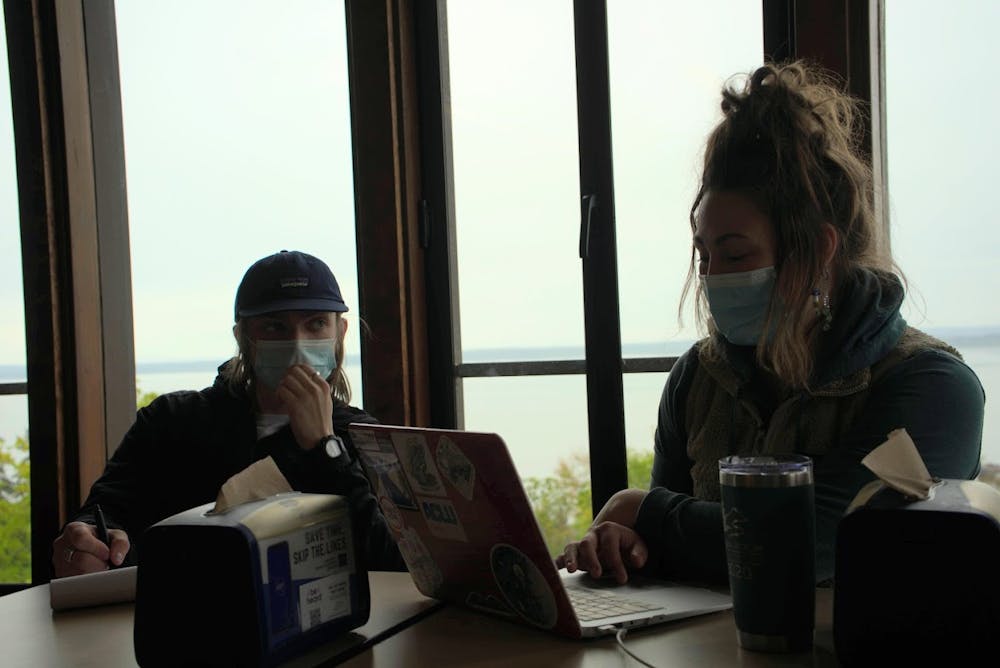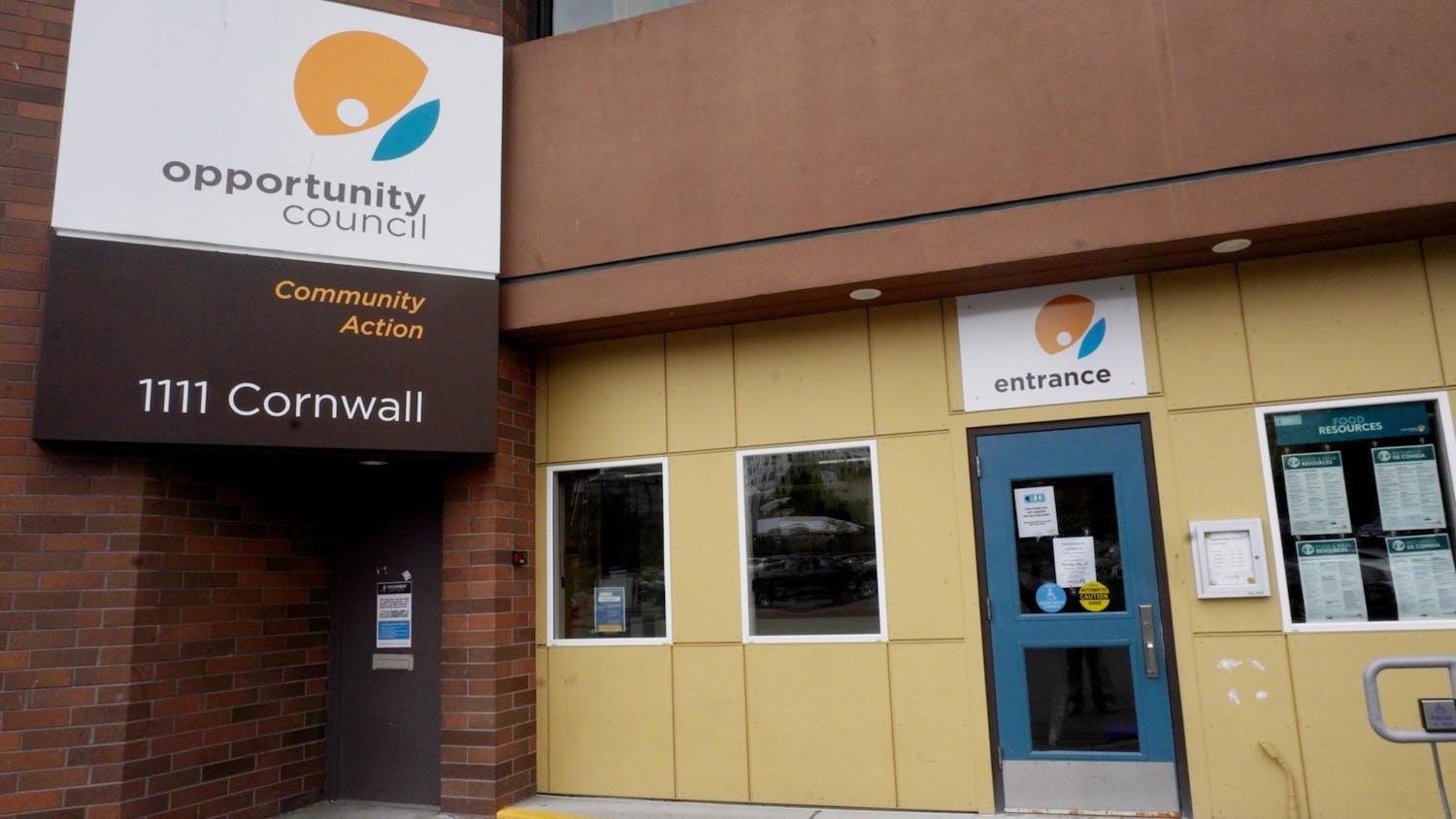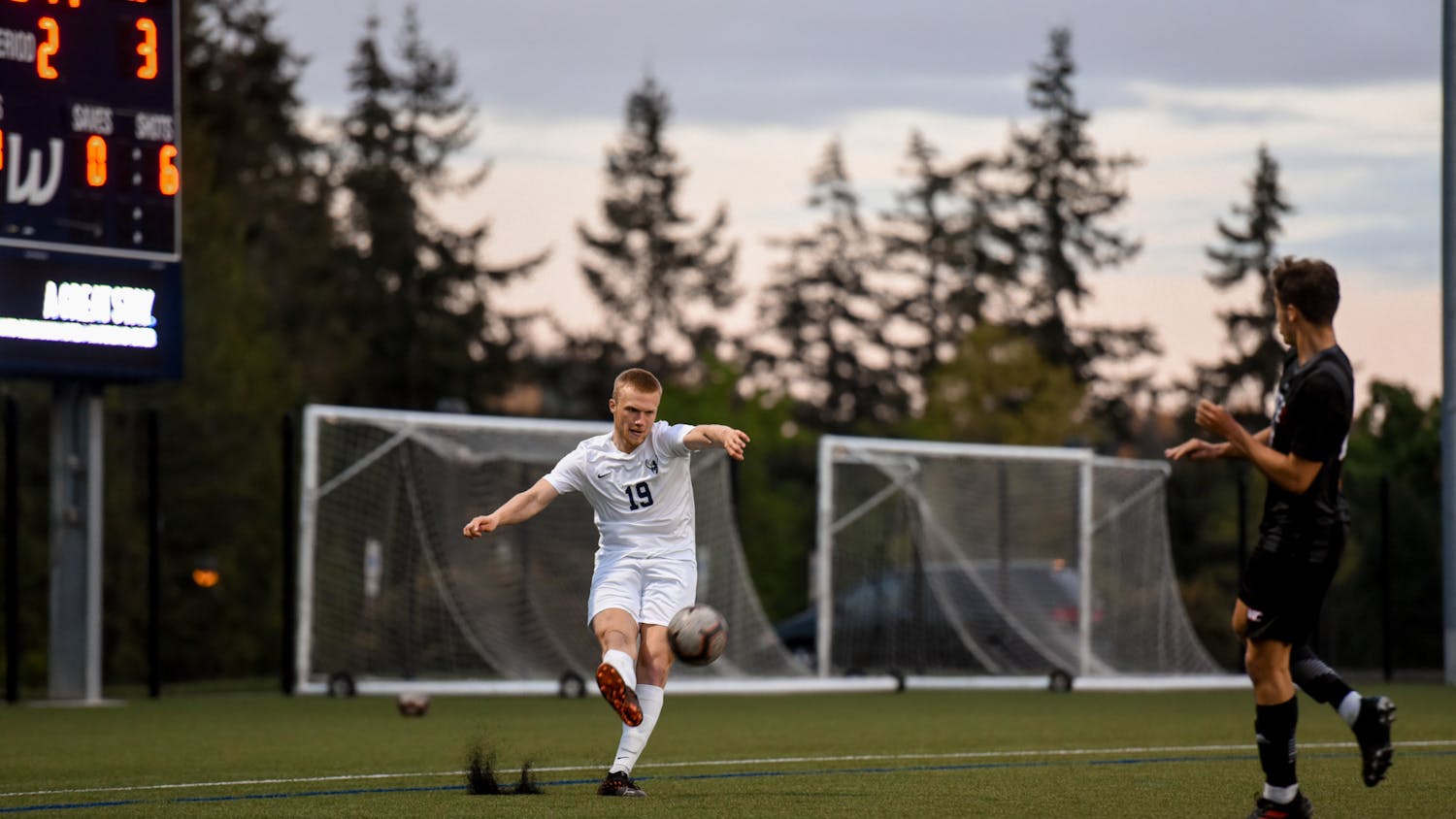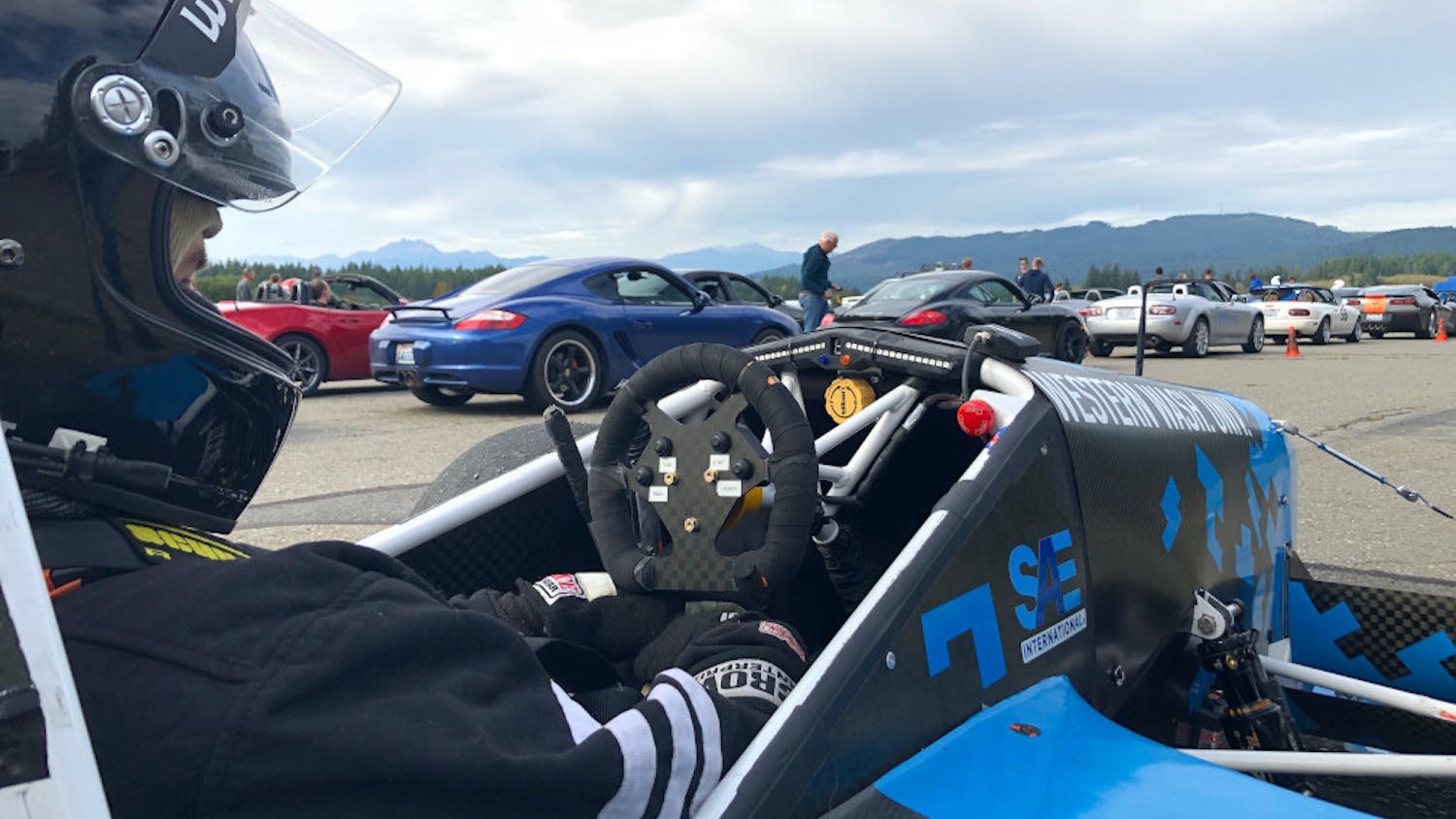Climate activism at Western Washington University has opened a new front with the founding of the Students for Climate Action.
Holding its first meeting on May 6, the club seeks to use direct action and demonstrations to advocate for greater environmental protection and defense against climate change.
The club originated from personal history of placing high value on the environment, along with a strong desire to protect it, according to club organizers Liam Pratt and Cassidy Austin-Merlino.
“I grew up in a rural Alaskan community, so I was really lucky to grow up with the privilege of having an abundance of opportunities to live sustainably as well as get out and explore, hike on glaciers, go fishing and run rivers,” Austin-Merlino said. “Approaching our environmental justice movement regarding the fact that some people haven’t had access to the outdoors, and approaching that problem first is really crucial.”
Pratt grew up adjacent to the Olympic Mountains and founded his high school’s hiking club. He soon realized that many of the club members had little experience out in nature, and became motivated to involve the club in environmental education.
“From there, it just sort of fell into environmental advocacy,” Pratt said. “How are you going to educate someone on something that doesn’t exist? I want to make sure people have access to the thing that I was so fortunate to grow up with, and the only way I can see that happening is being physically involved with standing up for that.”
Club members also expressed their distress at the all-too-familiar signs of environmental destruction and identified this concern as a reason to join the club.
“It saddens and terrifies me to see things so rapidly changing in our home and in the whole world,” said Gabbie Laipenieks, a member of the Students for Climate Action.
Joe Magnani, another club member, wants to protect local salmon populations from environmental destruction.
“Removing the lower four Snake River dams could be a big help because the Snake River Valley is supposedly the most climate-resilient watershed we have left,” Magnani said. “I’d like to do something about it instead of sitting down and watching it happen.”
The lower four Snake River dams have been criticized by environmental activists for impeding salmon breeding and driving populations to extinction, while the federal government maintains they allow for safe fish passage and provide large quantities of carbon-free energy.
Austin-Merlino and Pratt met during the initial planning stages of the club, and both have a strong desire to move from discussing climate issues to taking action.
“We kind of noticed how the ‘Fridays for Future’ movement lost momentum when the pandemic started,” Austin-Merlino said. “Liam and I both have a lot of experience working with that movement and really wanted to pick up the momentum and get people advocating for climate justice on campus.”
Officially the School Strike for Climate, Fridays for Future is an international movement of students who skip class on Fridays to protest a lack of action on climate change and renewable energy.
Pratt was involved in 350, which he described as an all-encompassing organization focused on criticizing corruption in government with regards to corporate interests, holding oil companies accountable for environmental destruction and promoting climate justice.
Austin-Merlino was involved in a group called Alaska Youth for Environmental Action in high school, which she says gave her experience in local movements for environmental protection.
The club hopes to host events that raise awareness on climate change and conduct demonstrations protesting inaction on climate issues.
“We have a lot of folks that know a lot about the issue, that care about the issue but just don’t know how to get involved and how to advocate for these things,” Pratt said. “We hope that in the long term, that by having this club people will be able to take those steps and eventually gain the knowledge and experience in being comfortable with advocating for the things they care about.”
Alyssa Tsukada, student ambassador at the Western Sustainability Engagement Institute, agrees that giving people tools to act is key.
“I think climate activism and sustainability can oftentimes be inaccessible to people simply because there are not enough doorways in; people just expect others to care enough to figure it out,” Tsukada said in an email. “In my view, providing education is the first step to getting someone to care enough to do something about it.”
Tsukada is supportive of the club’s mission and hopes the Sustainability Engagement Institute will collaborate with the club in the future.
“My biggest hope for the club is that their mission goals take an intersectional approach to climate action,” Tsukada said. “Many people purely look at the ecological side such as waste reduction and carbon emissions, but there is so much more that needs to be addressed if we want effective climate action.”
Club organizers also emphasized that the environmental justice movement must be intersectional in order to achieve its goals.
“A goal of our club is to create a sense of community within the environmental justice movement,” Austin-Merlino said. “In the fight for environmental and social justice, we need everybody to be heard. Diversity is our strength.”
The club is currently focusing on local strikes for climate justice and raising awareness on campus. They run an Instagram account which you can find here.
Finn Kurtz (they/he) is the Opinion and Outreach Editor of The Front for summer quarter. He is a history and political science double major and a journalism/news editorial minor in their fourth year at Western. In his free time, he enjoys looking in bookstores, going on walks in the woods, and trivia.
They can be reached at finnkurtz.thefront@gmail.com.






